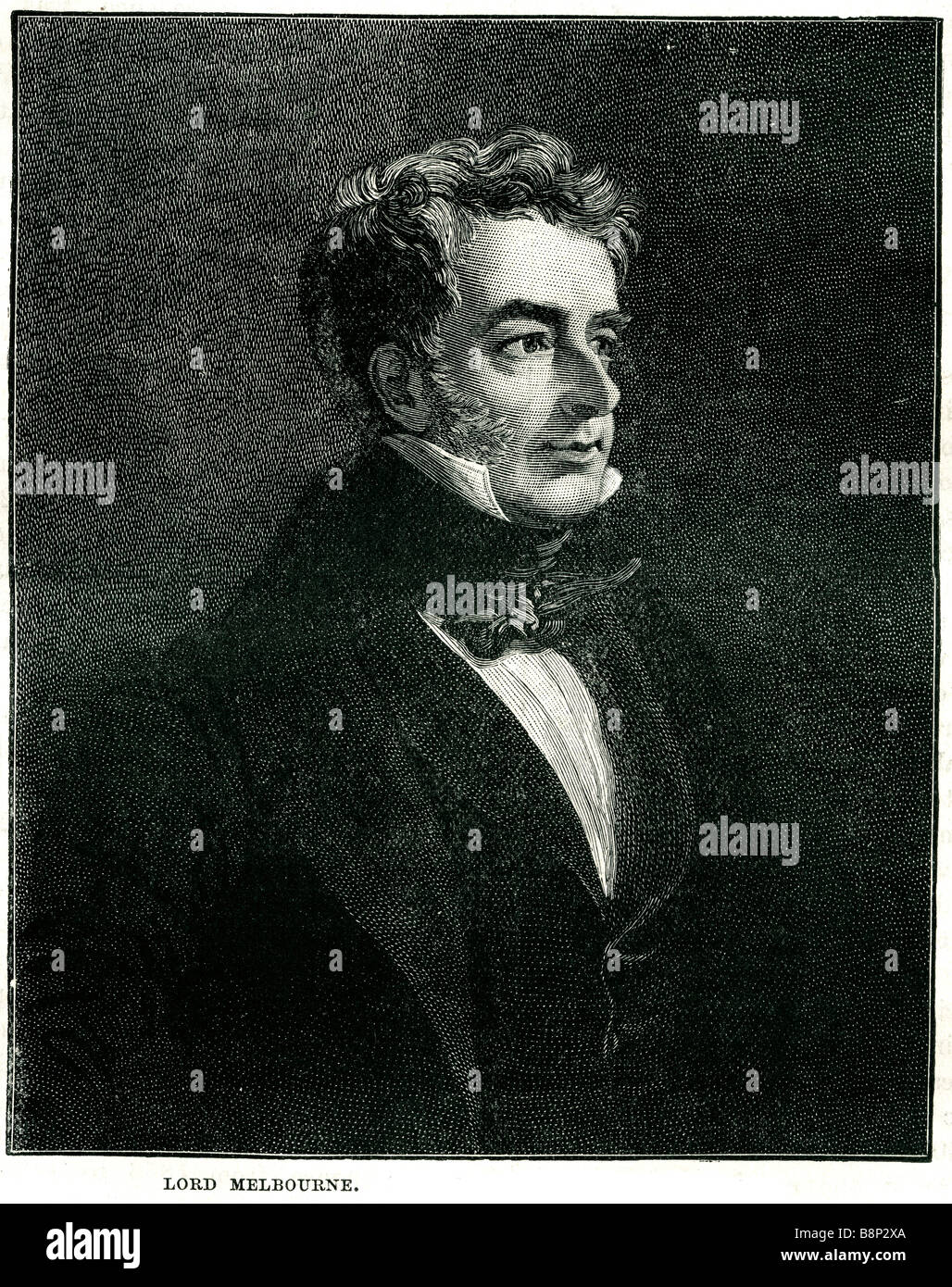William Lamb 2nd Viscount Melbourne 1779 1848 British Whig statesman

Image details
Contributor:
19th era / Alamy Stock PhotoImage ID:
B8P2XAFile size:
53.6 MB (6.1 MB Compressed download)Releases:
Model - no | Property - noDo I need a release?Dimensions:
3850 x 4868 px | 32.6 x 41.2 cm | 12.8 x 16.2 inches | 300dpiMore information:
William Lamb, 2nd Viscount Melbourne, PC, FRS (15 March 1779 – 24 November 1848) was a British Whig statesman who served as Home Secretary (1830–1834) and Prime Minister (1834 and 1835–1841), and was a mentor of Queen Victoria. Compromise was the key to many of Melbourne's actions. He was opposed in theory to the radical governmental reforms proposed by the Whigs, but reluctantly accepted that they were necessary to forestall the threat of revolution. While he was less radical than many, when Lord Grey resigned (July 1834), Melbourne was widely seen as the most acceptable replacement among the Whig leaders, and became Prime Minister. King William IV's opposition to the Whigs' reforming ways led him to dismiss Melbourne in November. He then gave the Tories under Robert Peel an opportunity to form a government. Peel's failure to win a House of Commons majority in the resulting general election (January 1835) made it impossible for him to govern, and the Whigs returned to power under Melbourne in April 1835. This was the last time a British monarch attempted to dismiss a prime minister. The next year, Melbourne was once again involved in a sex scandal. This time he was the victim of attempted blackmail from the husband of a close friend, society beauty and author Caroline Norton. The husband demanded £1400, and when he was turned down he accused Melbourne of having an affair with his wife. In the early 19th century even one sexual scandal (like the one two decades earlier involving Lord Byron) would be enough to finish off the career of most men, so it is a measure of the respect contemporaries had for his integrity that Melbourne's government did not fall. After Mr. Norton was unable to produce any evidence of an affair, the scandal died away.